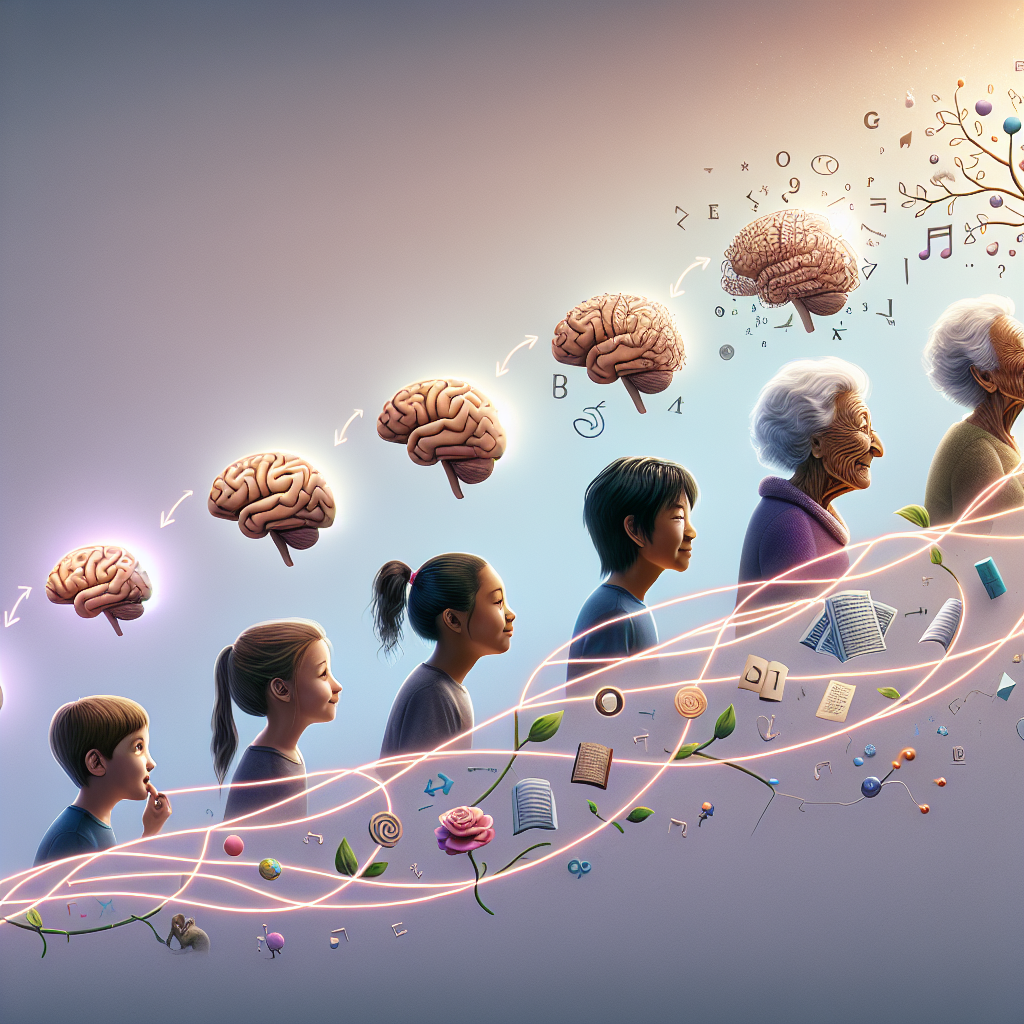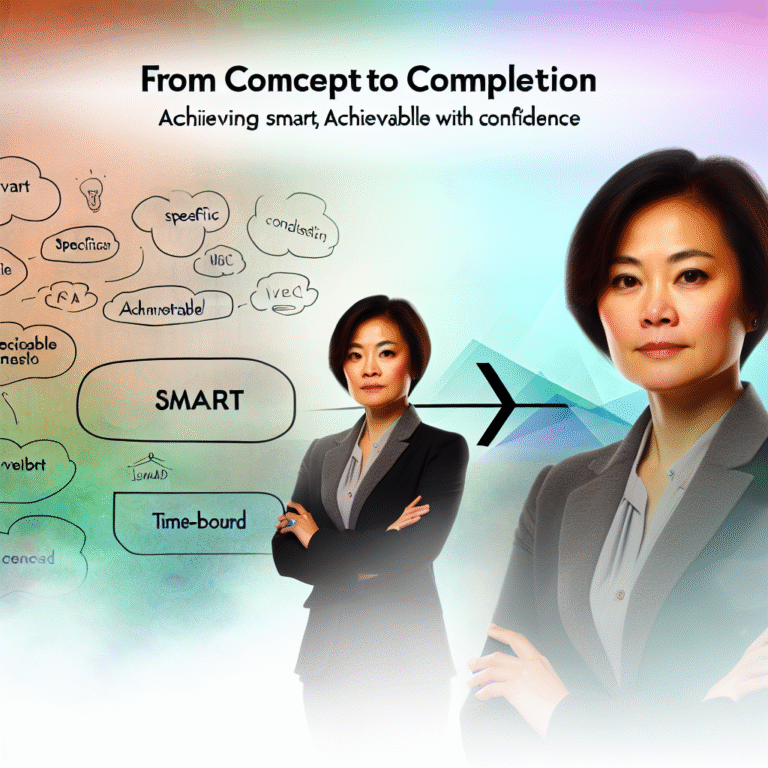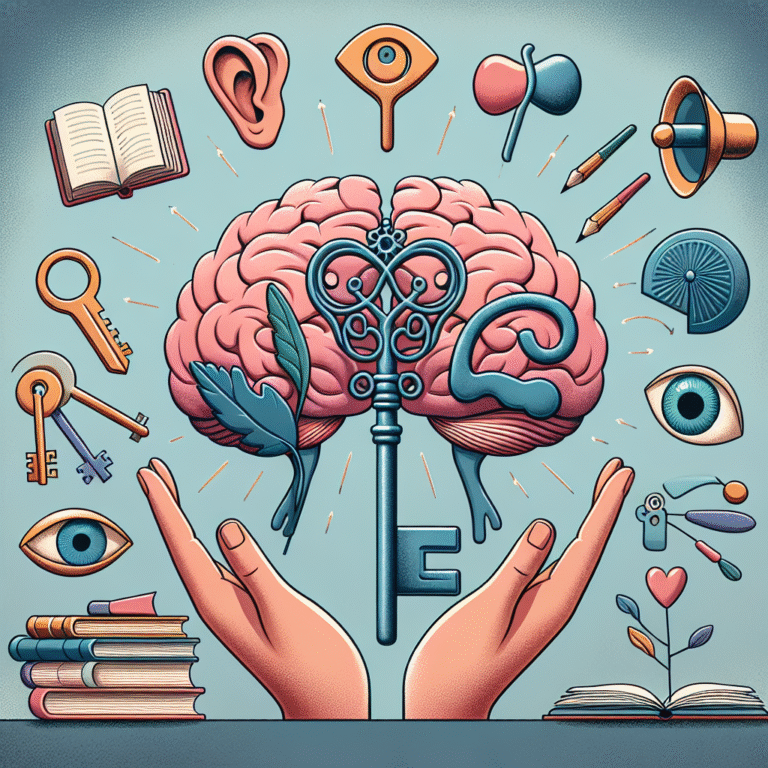
The Dynamics of Thinking: Dissecting the Stages of Cognitive Development
Introduction
In an age where understanding human behavior and decision-making is more critical than ever, delving into the dynamics of thinking offers invaluable insights. The process of cognitive development shapes how we perceive the world, solve problems, and make decisions. From childhood through adulthood, the stages of cognitive development not only influence personal growth but also have profound implications in education, the workplace, and beyond. This article will explore "The Dynamics of Thinking: Dissecting the Stages of Cognitive Development," providing a comprehensive look at how we think and learn, and equipping readers with the tools to enhance their cognitive skills.
Understanding Cognitive Development
What Is Cognitive Development?
Cognitive development refers to the progression of thinking and intellectual abilities over the lifespan. From Jean Piaget’s seminal theories on child development to contemporary insights on adult cognition, understanding how our thinking evolves can illuminate why we act and react the way we do.
Why It Matters
Recognizing the stages of cognitive development can lead to better educational practices, workplace environments, and even personal relationships. Understanding the dynamics of thinking can foster empathy, improve communication, and enhance problem-solving skills.
Stages of Cognitive Development
1. Sensorimotor Stage (0-2 years)
During the sensorimotor stage, infants learn through interaction with their environment. They develop object permanence and the understanding that their actions can affect the world around them.
Case Study: The A-Not-B Task
Research by Jean Piaget, demonstrated through the A-Not-B task, shows how infants reach for an object hidden at location A rather than location B, even after seeing it placed there. This critical insight illustrates the limitations in infant cognition and helps us understand foundational aspects of cognitive development.
Analysis: This case underscores the gradual evolution of thinking skills. The failure to grasp object permanence at this stage illustrates how central sensory experiences are for early cognitive development.
2. Preoperational Stage (2-7 years)
In this stage, children begin to engage in symbolic play and learn to manipulate symbols, yet they do not yet understand concrete logic. Their thinking is intuitive rather than logical.
Visualization of Cognitive Skills
| Cognitive Trait | Description | Example |
|---|---|---|
| Egocentrism | Difficulty in seeing others’ perspectives | A child thinking everyone shares their viewpoints |
| Animism | Belief that inanimate objects have feelings | A child talking to their stuffed animals |
| Irreversibility | Difficulty in understanding that actions can be reversed | Not understanding that pouring water back into a bottle restores the original quantity |
Analysis: This table helps visualize cognitive traits which can impact learning approaches in early education, emphasizing the need for teachers to create engaging, multifaceted experiences.
3. Concrete Operational Stage (7-11 years)
Children in the concrete operational stage develop logical thought processes but struggle with abstract ideas. They can classify objects and understand the concept of conservation.
Case Study: Conservation Tasks
Piaget’s conservation tasks demonstrate that children understand the principle that quantity doesn’t change even when its shape does, once they reach the concrete operational stage. For example, understanding that a ball of clay retains the same volume when reshaped into a pancake.
Analysis: This case highlights the transition into logical reasoning, showcasing how practical, hands-on experiences facilitate cognitive growth.
4. Formal Operational Stage (12 years and up)
Adolescents enter the formal operational stage, characterized by abstract and hypothetical thinking. They can strategize and understand complex concepts.
Real-World Implications
Incorporating project-based learning in high school curriculums allows students to engage in real-world problem-solving. For instance, a group project that requires developing a sustainable energy solution encourages abstract reasoning and critical thinking.
Analysis: The shift to formal operational thinking provides the foundation for advanced problem-solving and critical-thinking skills indispensable in higher education and the professional world.
Implications of Cognitive Development in Education
Tailoring Curricula
Understanding "The Dynamics of Thinking: Dissecting the Stages of Cognitive Development" allows educators to tailor curriculums that align with students’ cognitive abilities. For example:
- Early childhood education should focus on sensory and play-based approaches, recognizing the limitations of preoperational thinking.
- Middle school education can introduce more complex and abstract tasks, supporting students in applying logical reasoning.
Scaffolding Techniques
Scaffolding, a method where educators provide successive levels of temporary support, can enhance learning. By breaking down complex tasks into manageable parts, educators can guide students through their cognitive development journeys.
Integrating Technology
Tools like interactive simulations and gamified learning can cater to various cognitive stages. For example:
- Younger students benefits from apps that reinforce sensory experiences, fostering foundational skills.
- Older students often thrive with platforms that require critical thinking and collaboration, matching their cognitive maturity.
Enhancing Cognitive Development in Adulthood
While cognitive development is often associated with childhood, it continues throughout life. Understanding "The Dynamics of Thinking: Dissecting the Stages of Cognitive Development" equips adults to foster their cognitive growth.
Lifelong Learning
Embracing lifelong learning through workshops, courses, and self-guided studies can enhance cognitive flexibility. Adult education programs that cater to various cognitive stages will help individuals refine their skills and broaden their perspectives.
The Role of Mindfulness
Mindfulness and cognitive behavioral strategies can foster self-awareness and cognitive clarity. Practices such as meditation enhance focus, analytical thinking, and emotional regulation, vital for navigating today’s fast-paced world.
Conclusion
Exploring "The Dynamics of Thinking: Dissecting the Stages of Cognitive Development" reveals the intricate scaffolding of our thought processes. From the foundational sensorial experiences in infancy to the sophisticated abstract reasoning in adulthood, each stage of cognitive development presents unique challenges and opportunities.
By recognizing and applying insights into these dynamics, individuals can enhance their cognitive skills, improve educational practices, and foster more meaningful relationships. As we continue to develop our thinking, we empower ourselves to adapt, innovate, and thrive in a complex world.
FAQs
1. What is the importance of understanding cognitive development stages?
Understanding cognitive development is crucial for educators, parents, and individuals, as it helps tailor learning experiences and enhances effective communication.
2. Can cognitive development occur later in life?
Yes, cognitive development is a lifelong process. Adults can enhance their cognitive skills through education, new experiences, and mindfulness practices.
3. How do different types of intelligence fit into cognitive development?
Multiple intelligences, such as emotional, creative, and analytical intelligence, interplay with cognitive development, influencing how individuals process information and solve problems.
4. What are effective methods for educators to facilitate cognitive growth?
Effective methods include hands-on learning, project-based tasks, and tailored feedback, all aimed at aligning teaching methods with cognitive maturity.
5. How can I enhance my own cognitive skills as an adult?
Engaging in lifelong learning, mindfulness practices, and intellectual challenges—such as puzzles or strategic games—can significantly enhance cognitive skills.
By addressing these questions, this article has not only dissected cognitive development stages but also provided actionable insights, ensuring that readers are well-equipped to engage with and apply these principles in various domains of their lives.














